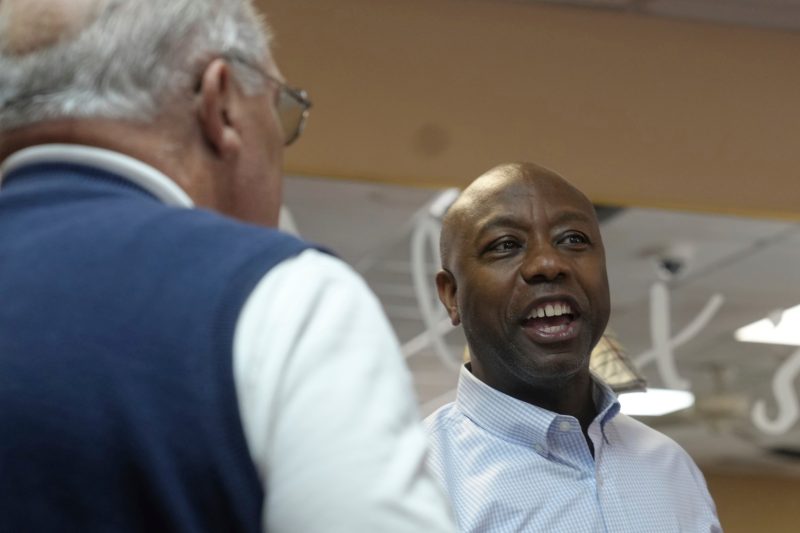South Carolina Republican Sen. Tim Scott signaled Friday that he would sign a six-week federal ban on abortion if passed by Congress while he was president, staking a more extreme position than he had previously taken.
Scott, who launched a presidential exploratory committee this week, has struggled in recent days to directly answer questions about how many weeks into a pregnancy abortions should be made illegal nationally.
While campaigning in his home state on Friday, a reporter asked him if he’d support a six-week ban, to which he responded, “absolutely” if state legislatures can pass it.
“If I were president of the United States, I would literally sign the most conservative pro-life legislation that they can get through Congress,” Scott added, regarding a federal ban.
“Even if that was six weeks?” the reporter clarified.
“I’m not going to talk about six or five or seven or ten,” Scott replied.
Republicans broadly are grappling with how far to go in limiting abortions following the Supreme Court’s ruling last year overturning Roe v. Wade, a decision opposed by large majorities of Americans. Florida Gov. Ron DeSantis (R), who is considering his own run for president in 2024, signed a 6-week abortion ban into state law. Democrats note that many women do not even know they are pregnant at the six-week mark.
Scott has repeatedly co-sponsored legislation in Congress to ban abortions after 20 weeks, and has also supported bills that would deem life begins at conception, using the Constitution’s 14th Amendment right to life to effectively outlaw all abortions.
But he has not signed on to a 15-week national ban proposed by his South Carolina colleague, Sen. Lindsey O. Graham (R). He was asked by a CBS News reporter while campaigning in Iowa on Wednesday if he would back Graham’s proposal. He responded that he was “100 percent pro-life.” When pressed on whether that was a yes, he said, “That’s not what I said.”
Then Thursday, Scott confirmed in interviews his support for a federal 20-week ban, saying there wasn’t “a question in my mind at all” about that threshold, but then answered vaguely when pressed on other earlier time frames.
Scott has also declined to take a position on whether abortion medication should remain legal in America, telling reporters in New Hampshire that he believed “the courts are on their way to solving the problem,” referring to conflicting legal rulings over the federal government’s approval of a key abortion drug.
Asked about it again on Friday, Scott said he believed the Food and Drug Administration’s approval process was flawed, and said the Supreme Court would ultimately need to rule on the issue.
“I believe that the judiciary will make a good decision in the end,” he said.
Hannah Knowles in Charleston, S.C., contributed to this report.



























